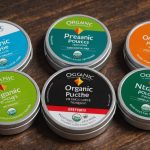Overview of the Alkaline Diet
The alkaline diet principles revolve around balancing the dietary pH by emphasizing foods that are believed to have an alkaline effect on the body. These foods mainly include fruits, vegetables, nuts, and legumes, while avoiding acid-forming foods like meats, dairy, and processed items. At the core of the diet is the theory that excess acid in the body can lead to various health problems, and thus maintaining a higher pH level through an alkaline diet may prevent diseases and promote wellness.
Alkaline foods such as leafy greens, cucumber, and almonds are staples in this dietary approach. These foods are not only appreciated for their potential health benefits but also for their nutritional value, providing essential vitamins and antioxidants.
Also read : Discover the best organic nicotine pouches for your needs
Proponents of the alkaline diet suggest it can improve energy levels, promote weight loss, and enhance overall health. While scientific consensus on its effectiveness is varied, anecdotal reports suggest relief from chronic conditions. Understanding and incorporating these principles can be a positive step towards informed dietary choices, embracing the notion of balance and natural nutrition within one’s lifestyle.
Understanding Chronic Urticaria
Chronic urticaria, commonly known as chronic hives, is characterised by persistent, itchy welts on the skin that last for six weeks or longer. These welts may be red or skin-coloured and can cause considerable discomfort. They often come with unpredictable flare-ups, contributing to significant stress for sufferers.
Also read : Discover tailored addiction supportive treatment in Monaco
Chronic urticaria symptoms include intense itching, swelling, and redness. These symptoms can vary in severity and often result in a disruption of daily activities. Recognising triggers is crucial in managing the condition.
Common causes of urticaria include allergens like certain foods, medications, and insect bites. Additionally, stress and environmental factors can induce or worsen symptoms. Though specific causes are sometimes elusive, inflammation is a key player.
Inflammation in urticaria stems from the immune system’s response, which leads to the release of histamines and other chemicals in the skin. This response often exacerbates swelling and itching. Understanding these mechanisms can help in developing strategies to manage symptoms effectively and tailor treatments seamlessly to an individual’s needs. Consulting with healthcare professionals offers a strategic approach to addressing chronic urticaria’s complex nature.
The Relationship Between Diet and Inflammation
Diet plays a crucial role in how our bodies respond to inflammation. Understanding the dietary impact on inflammation is key to managing and potentially reducing these effects. Certain foods are known to exacerbate inflammation, while others, commonly referred to as anti-inflammatory foods, can help mitigate it. These include whole grains, leafy greens, and fatty fish like salmon, which are rich in omega-3 fatty acids.
Scientific studies have demonstrated a link between diet and inflammation levels. For instance, research indicates that a diet high in processed foods and sugars can increase inflammatory markers, while incorporating more plant-based foods often results in inflammation reduction.
By carefully selecting what we consume, we can positively influence our body’s inflammatory response. This dietary approach not only supports general wellness but may also have implications for conditions where inflammation plays a pivotal role, such as chronic urticaria. While more research is necessary to fully understand these connections, it is clear that diet is a powerful tool in managing inflammation and promoting overall health.
Alkaline Diet and Inflammation in Chronic Urticaria
The alkaline diet can potentially impact inflammation, particularly in managing chronic urticaria. The diet’s emphasis on alkaline foods may theoretically balance the body’s dietary pH, yet understanding its effects involves examining key mechanisms.
Alkaline diet effects relate to reducing acidity levels, which may help decrease inflammatory responses. Foods such as fruits and vegetables are rich in nutrients that promote an environment hostile to inflammation. This could, in theory, alleviate some chronic urticaria symptoms linked to inflammation.
Research on the alkaline diet’s benefits for chronic urticaria is limited; however, some personal testimonials and expert opinions suggest potential enhancements in symptom management. These insights reflect anecdotal improvements in stress-related triggers and physical discomfort.
It’s crucial to acknowledge the varied response to dietary changes, with some individuals experiencing significant inflammation reduction while others may note negligible effects. Consulting healthcare professionals can provide tailored advice, ensuring dietary modifications align with individual health needs. Through informed choices, the alkaline diet could serve as one piece of a comprehensive approach to managing chronic urticaria effectively.
Practical Tips for Implementing an Alkaline Diet
Adopting an alkaline diet can seem daunting, but simple planning can ease the transition. By focusing on meal planning and integrating healthy recipes, you can efficiently incorporate alkaline principles into your lifestyle.
Foods to Incorporate
To maintain a balanced dietary pH, include a variety of alkaline foods in your diet.
- Leafy greens like kale and spinach
- Fruits such as berries, lemons, and melons
- Nuts: almonds are particularly beneficial
- Legumes: incorporate lentils and chickpeas
These foods are not only supportive of an alkaline environment but also provide essential vitamins and minerals.
Foods to Avoid
On the other hand, avoiding certain foods is crucial for those adopting this diet:
- Processed foods
- Red meats and poultry
- Dairy products
These are known to be acid-forming and can disrupt the body’s pH balance.
Sample Meal Plan
A straightforward meal plan can simplify the adoption of an alkaline diet:
- Breakfast: Oatmeal with berries and almond milk.
- Lunch: Mixed leafy green salad with lemon vinaigrette and chickpeas.
- Dinner: Grilled vegetables and quinoa.
By focusing on these alkaline principles, you can align your diet with your health goals.
Lifestyle Changes for Symptom Relief
Engaging in lifestyle modifications is crucial for managing chronic urticaria effectively. Besides dietary adjustments, one can also explore stress reduction techniques to complement these changes. Reducing stress is essential, as anxiety can exacerbate symptoms. Incorporating practices like meditation, yoga, or deep-breathing exercises can significantly diminish stress levels and support overall well-being.
Stress reduction plays a pivotal role in alleviating symptoms. Techniques such as mindfulness meditation or regular physical activity can create a sense of calm and balance, potentially reducing the frequency and intensity of urticaria flare-ups. Maintaining a consistent routine is beneficial, making these activities a part of daily life.
Managing allergic reactions and reducing inflammation requires a holistic approach. Identifying potential allergens, avoiding known triggers, and maintaining an allergy diary can offer insights into symptom patterns. Using hypoallergenic products for skincare can also help minimize skin irritations.
Finally, prioritizing rest and ensuring adequate sleep are fundamental lifestyle adjustments. A well-rested body is better equipped to handle stress and recover from allergic episodes, contributing positively to inflammation management and overall health.
Consultation with Health Professionals
Consulting with health professionals is essential when embarking on dietary changes, particularly concerning the alkaline diet. Working with dietitians can offer personalized guidance aligning the diet with individual health goals. They help navigate the complex interplay between diet and chronic conditions by providing tailored advice to enhance dietary practices.
Allergy specialists play a pivotal role in the management of chronic urticaria. Their expertise is invaluable in identifying triggers and offering strategies to mitigate symptoms through informed dietary choices. They work closely with dietitians to ensure that dietary adjustments do not inadvertently trigger allergic reactions.
Moreover, collaborating with healthcare professionals ensures a personalized nutrition approach, considering unique dietary needs and medical histories. This collaboration is particularly beneficial for those with complex dietary needs or those managing multiple health conditions. Experts can evaluate the alkaline diet effects and suggest modifications to optimize health outcomes while preventing nutrient deficiencies.
Engaging with health professionals empowers individuals to make informed decisions, paving the way for a comprehensive approach to health management that incorporates both dietary and medical perspectives.



